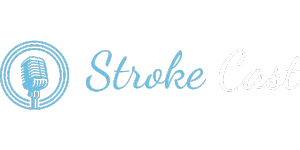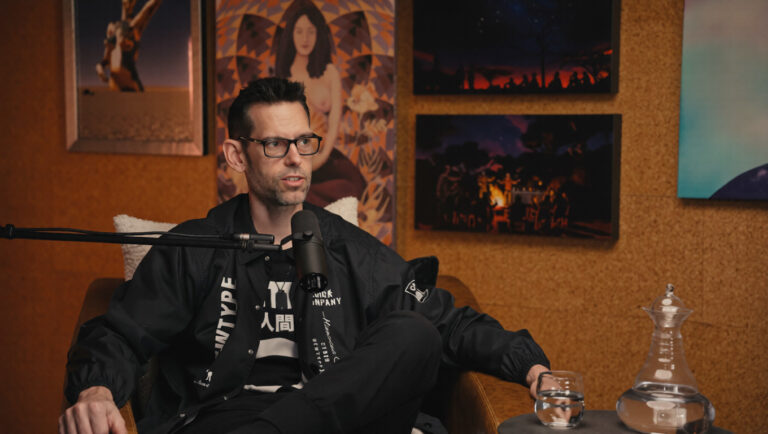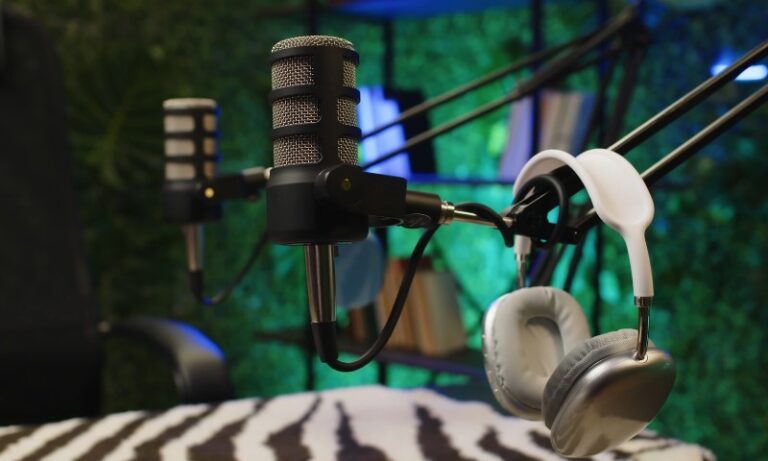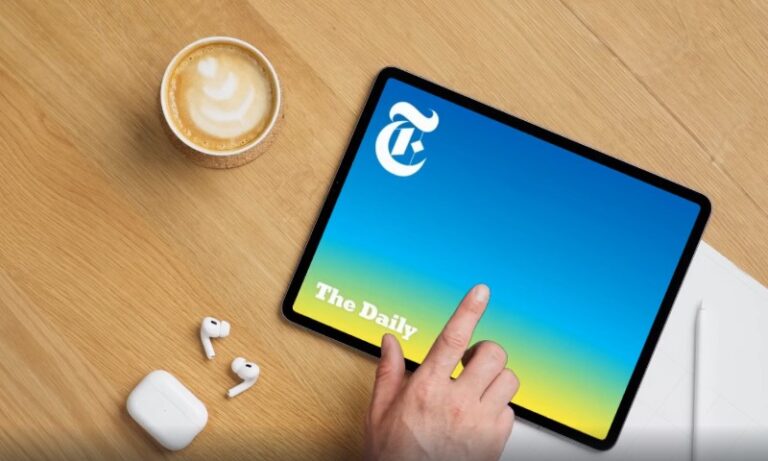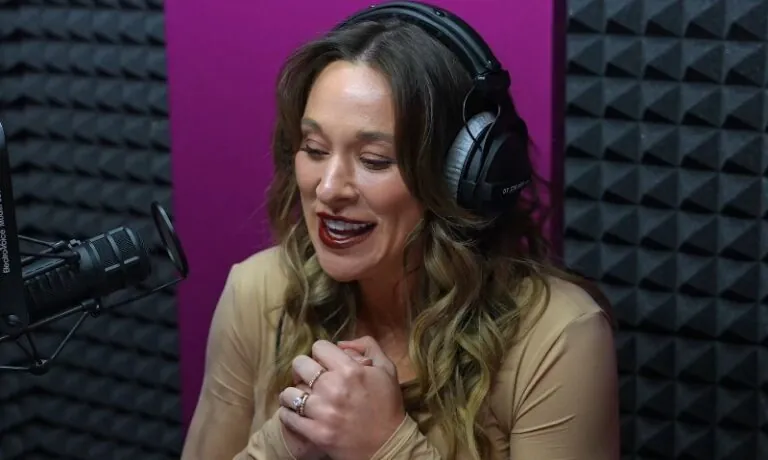In a world saturated with marketing noise, building an authentic personal brand is essential. And few tools are as uniquely suited to that task as podcasting. Unlike social posts or blog blurbs, a podcast lets people hear you: your tone, your energy, your hesitation, your joy. That kind of connection can’t be faked.
In 2024, more than 193 million Americans tuned into podcasts, averaging eight episodes a week. That’s a massive audience, multitasking while they listen on commutes, workouts, or coffee breaks.
And they’re not just passive listeners. They’re followers, community members, and potential collaborators. So if you’re looking to grow a real personal brand, not just a profile with followers, but a reputation people trust, podcasting is one of the most potent platforms you can choose.
Let’s break down the top strategies that actually work.
Start With High-Quality, Niche-Focused Content
If you’re aiming to stand out in the sea of podcasts, it starts with laser focus. Not general tips, not vague inspiration. You want to get specific.

Choose a Niche You Know and Care About
That means picking a topic that’s rooted in your own experience. Not just something trending, but something where your knowledge runs deep. Take Dr. Felix Bertram, for example.
His podcast, Aesthetics & Biz, didn’t try to appeal to everyone, it zoomed in on business in the aesthetic medicine field. That’s where he’s an expert, and that’s where he builds trust.
Also, if your niche has a global audience, consider using AI dubbing to make your episodes more accessible across languages.
Share Practical Advice, Not a Sales Pitch

The fastest way to lose listeners? Sound like an ad. The fastest way to build loyalty? Offer real advice that people can apply.
Give away the good stuff. Walk listeners through your best productivity hack. Break down the framework you use with clients. Show your process.
Bring in Storytelling
Stories are sticky. You might explain a technical concept for 10 minutes and people will nod, but they’ll remember the anecdote about how it went sideways during your first attempt. Share moments that reveal how you think, what you’ve learned, and who you really are.
Keep It Actionable
Wrap each episode with something your listener can do right now. Not a vague “think about your goals,” but a clear next step, like writing three potential podcast titles or creating a quick 5-minute audio draft.
Sound Matters

Don’t let sloppy audio undo all your great content. Use a decent mic, clean up background noise, and make your production smooth.
It doesn’t need to sound like NPR, but it should feel cared for. A crisp sound earns credibility.
Be Authentically You
No gimmicks. No polished version of a persona. Just you.
Show Up as Yourself
People can hear fake. Don’t try to sound like someone else or copy another podcaster’s tone. Be as you are—whether that’s thoughtful, goofy, analytical, or casual. Listeners connect with honesty more than polish.
Take Gary Vaynerchuk, for example. Love him or not, Gary’s raw, blunt style has built a massive following because it feels real. And it’s consistent.
Share What’s Real
When things go wrong, talk about it. When you feel unsure, say so. When something excites you, let it come through. That’s where the real bond forms.
Look at Jimmy Jacobs Doesn’t Know, his podcast grew by pulling from personal experiences that others could see themselves in.
Lean Into the Audio Format
Audio creates a kind of intimacy that writing can’t. You’re in someone’s ears—literally. That makes it easier to build trust, faster. So let your personality come through, not just your knowledge.
Stay Consistent

If people like what you’re doing, they’ll want more. And they’ll expect it on schedule.
Set a Cadence You Can Keep
Don’t start with the pressure of weekly episodes if your bandwidth says monthly is more realistic. Consistency doesn’t have to mean frequency—it just means reliability.
Keep the Quality High
A rushed episode with poor editing or unclear thoughts can undercut your entire brand. Every time someone hits play, they’re deciding whether to keep you in their rotation. Respect that.
Build Community Around the Podcast
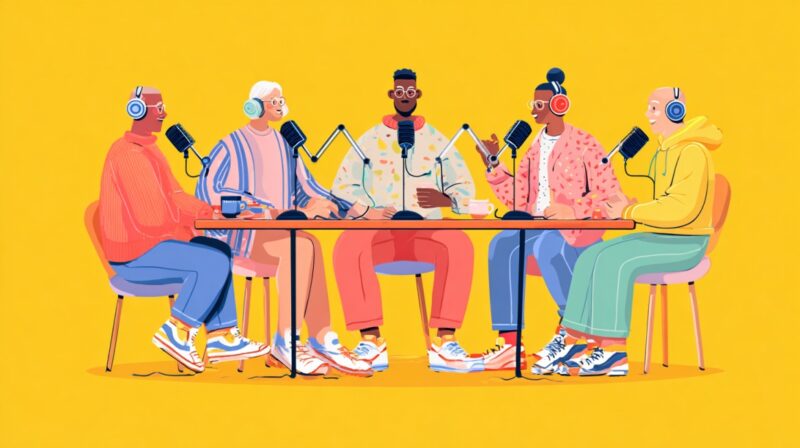
The podcast isn’t just about speaking. It’s about listening too.
Make Room for Audience Input
Ask for questions. Read reviews. Run polls. Invite your audience to suggest topics or share stories you can feature. Mentioning a listener by name? That’s gold. It makes people feel seen and part of something.
Use Social Media to Extend the Conversation
Reply to comments, repost listener thoughts, share behind-the-scenes snippets. Think beyond the episode drop—keep the connection going all week.
Reward Your Inner Circle
Consider bonus content, early access, or shout-outs for your most loyal listeners. Platforms like Patreon make it easy to offer extra value in return for support. Even small perks go a long way.
Make It Easy for People to Find You

You might have a brilliant podcast, but if it’s buried on page 4 of Apple Podcasts, you’re not going to reach new ears.
Optimize Titles and Descriptions
Think like your listener. What are they typing into a search bar? Use those keywords, naturally, when writing episode titles and show notes.
For example, “How to Build a Personal Brand on LinkedIn” will get more traction than “Episode 12 – My Thoughts on Branding.”
Get on Every Directory
Apple Podcasts, Spotify, Google Podcasts—those are the big three. But also consider Stitcher, Overcast, and platforms like Podchaser and Listen Notes, which help categorize your show for better search visibility.
Promote Smarter, Not Louder
Short audiograms, quote graphics, and even 30-second Reels or TikToks can tease what an episode is about.
Waveroom suggests using TikTok to drive curiosity back to your full episodes. And honestly? They’re not wrong. Even a 15-second insight can hook someone new. And what’s even better, you can easily monetize your videos!
If you’re looking to quickly gain traction or establish social proof on TikTok, consider platforms like SocialBoosting that help increase your follower count safely and organically.
Collaborate With Others
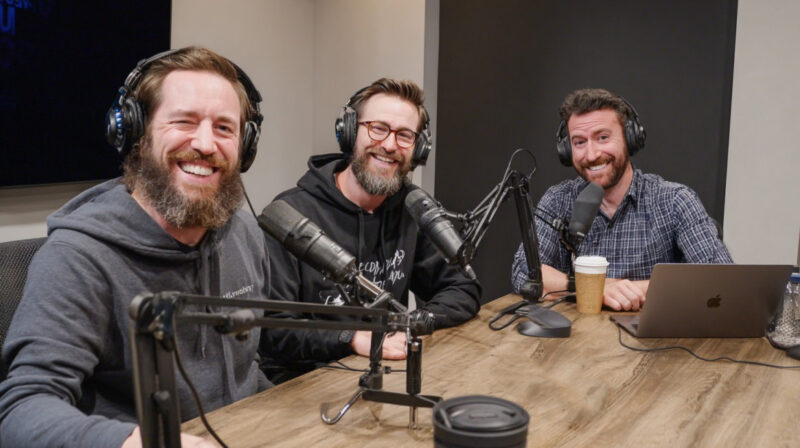
No brand grows in a vacuum. Your network helps you grow faster and deeper.
Bring on Guests Strategically
Not just friends or influencers with big followings. Bring on voices that add value to your niche, even if they have a smaller platform. Their audience will follow the trail back to you.
Be a Guest Yourself
Find other podcasts that align with your audience and pitch yourself as a guest. Platforms like MatchMaker.fm are built for this. It’s a win-win—new exposure for you, fresh content for them.
Use LinkedIn to Share and Connect
Share full episodes, but also cut 30-second highlights or insights that get the conversation going. After someone comments or shares your post, follow up. That relationship might lead to your next guest—or client.
Reuse What You’ve Already Created

Podcasting takes time. Maximize your effort by slicing it into new formats.
Turn Episodes Into Blog Posts
You’ve already mapped the ideas—transcribe and clean them up into long-form posts. You’ll boost SEO and offer another way for people to discover your voice.
Create Snackable Social Content
Take one quote, one stat, one story—and design it as a tweet, Reel, or carousel post. The more formats you hit, the more likely people are to share.
Build an Email Newsletter
Weekly or monthly, summarize episodes and link to them. Include one takeaway your audience can use. Make your newsletter feel like a friendly note, not a sales pitch.
Bundle Your Ideas
If you have several episodes on one theme—say, productivity or brand-building—turn them into an e-book or guide.
Offer it as a free download in exchange for an email address. Now your podcast is feeding your list.
Step Into Thought Leadership

Anyone can launch a podcast. Few become known for it. The key difference? Insight.
Go Deeper Than Surface-Level Chat
Instead of general tips, offer frameworks. Instead of echoing industry trends, challenge them—or forecast what’s next. Thought leaders aren’t just informed—they have a point of view.
Highlight Real-World Proof
Client wins, project lessons, behind-the-scenes moments—sharing them builds authority without being salesy. Aesthetics & Biz often walks through patient experiences, making abstract ideas feel grounded.
Pay Attention to What’s Working
Your gut is helpful. But so are analytics.
Use Platform Data
Apple Podcasts, Spotify, and others give you stats on downloads, listener retention, and top episodes. See what resonates, and double down.
Ask Listeners Directly
Create short surveys. Invite feedback in your episodes. Pay attention to reviews. What people say, especially unfiltered, is gold.
Watch Website Traffic
If you’re promoting your podcast on a site, track which episodes send people there. That shows who’s not just listening, but ready to go deeper with your brand.
Don’t Be Afraid to Get Help
If you’re strapped for time or tech skills, working with professionals is worth it. Services like Cue Podcasts can handle editing, show notes, uploads, and distribution. You stay in your lane—the content—and they keep the backend running smooth.
For many professionals, that’s the difference between a short-lived show and a long-lasting brand asset.
Final Thoughts
Building a personal brand through podcasting isn’t about going viral. It’s about showing up, being real, and sharing value consistently. Pick a niche you care about. Use your own voice, not someone else’s. Keep the production tight, the stories honest, and the advice useful.
People don’t want a host who has it all figured out. They want someone they trust—someone who shows up every week with something real to say.
Do that long enough, and your podcast won’t just be content. It’ll be a reputation. A relationship. A brand.
And it’ll be one that truly sticks.
Related Posts:
- 10 Fitness Tips from the Fresh and Fit Podcast -…
- Step-by-Step Guide to Building a Podcast Studio at…
- Tom Bilyeu Net Worth 2026 - How He Built a…
- Best Microphones for Podcasting on a Budget - Top Picks 2025
- The Rise of AI in Podcasting - Will Robots Replace Hosts?
- Marc Maron Ends WTF: Reflecting on 16 Years of…
